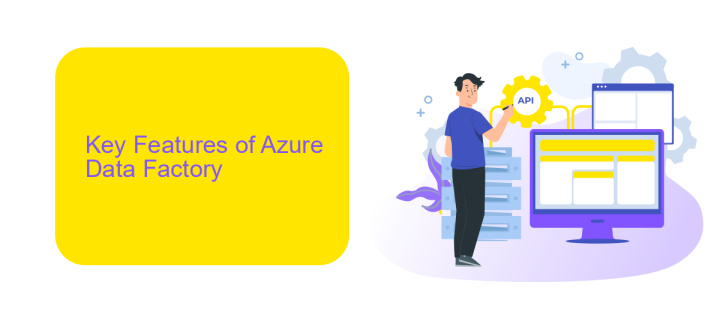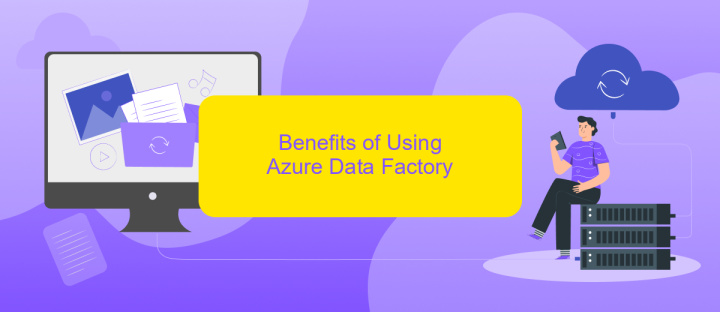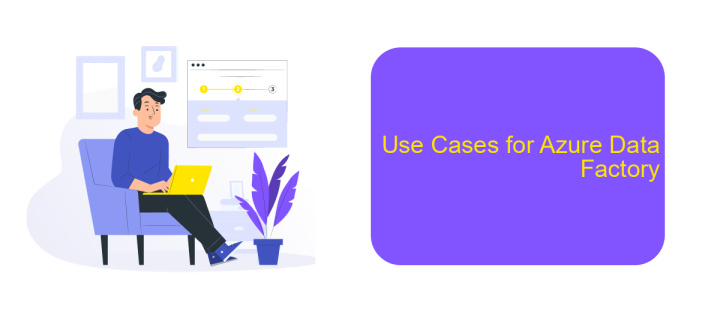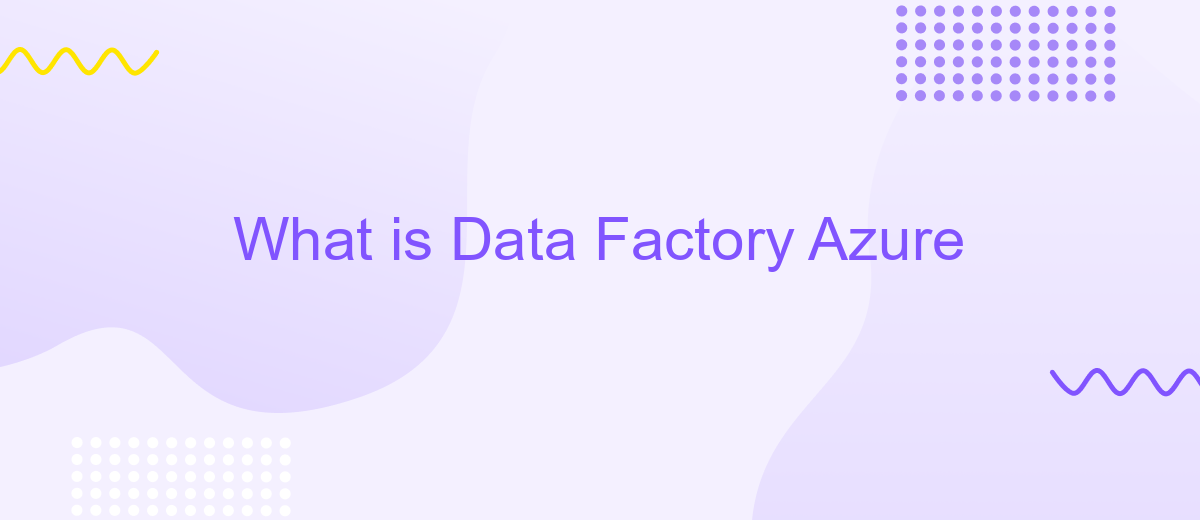What is Data Factory Azure
Azure Data Factory is a cloud-based data integration service provided by Microsoft. It enables users to create, schedule, and orchestrate data workflows at scale, facilitating seamless data movement and transformation. With its robust capabilities, Azure Data Factory helps organizations streamline their data processes, ensuring efficient and reliable data management across various sources and destinations.
What is Data Factory?
Azure Data Factory is a cloud-based data integration service that allows you to create data-driven workflows for orchestrating and automating data movement and data transformation. It enables you to construct complex ETL (extract, transform, load) processes in a scalable and manageable way.
- Data Ingestion: Collect data from various sources, both on-premises and in the cloud.
- Data Transformation: Process and transform data using data flows or compute services like Azure HDInsight.
- Data Orchestration: Schedule and monitor workflows to ensure timely data processing.
- Data Integration: Seamlessly integrate with other Azure services and third-party applications.
One of the key features of Azure Data Factory is its ability to integrate with various data sources and services. For instance, ApiX-Drive can be used to automate the integration of data from multiple platforms, making the data preparation process more efficient. This ensures that your data workflows are streamlined and reliable, enabling better data analytics and decision-making.
Key Features of Azure Data Factory

Azure Data Factory (ADF) offers a comprehensive set of features for building, managing, and orchestrating data workflows. One of its key strengths is the ability to integrate seamlessly with a wide variety of data sources, both on-premises and in the cloud. This enables users to create complex data pipelines that can ingest, prepare, transform, and publish data efficiently. Additionally, ADF supports a code-free environment for designing data workflows, making it accessible to users with varying levels of technical expertise.
Another notable feature is the robust scheduling and monitoring capabilities provided by ADF. Users can schedule data pipelines to run at specific times or trigger them based on certain events. The monitoring tools offer real-time insights into the performance and status of data workflows, ensuring that any issues can be quickly identified and resolved. For those looking to enhance their data integration processes further, services like ApiX-Drive can be integrated with ADF to automate and streamline data transfer between various applications and systems, offering a more cohesive and efficient data management solution.
Benefits of Using Azure Data Factory

Azure Data Factory offers a range of benefits that make it an essential tool for data integration and transformation. Its cloud-based nature allows for seamless scalability and flexibility, making it ideal for businesses of all sizes. Additionally, Azure Data Factory supports a wide array of data sources, enabling users to easily connect and integrate data from various platforms.
- Scalability: Automatically scales to handle large volumes of data without compromising performance.
- Flexibility: Supports multiple data sources, including on-premises and cloud-based systems.
- Cost-Effective: Pay-as-you-go pricing model ensures you only pay for what you use.
- Advanced Analytics: Integrates with Azure Synapse Analytics for comprehensive data analysis.
- Security: Robust security features to protect sensitive data during transfer and storage.
For businesses looking to streamline their data integration processes, Azure Data Factory can be combined with services like ApiX-Drive. This allows for automated data transfers and seamless integration between various applications, enhancing overall efficiency and reducing manual workload. The combination of Azure Data Factory and ApiX-Drive ensures a robust, scalable, and secure data management solution.
Use Cases for Azure Data Factory

Azure Data Factory is a powerful cloud-based data integration service that enables data movement and transformation. It is widely used across various industries to streamline data workflows and ensure data consistency and reliability. By leveraging Azure Data Factory, organizations can effectively manage their data pipelines and orchestrate complex data processes.
One of the primary use cases for Azure Data Factory is data migration. Companies often need to move large volumes of data from on-premises systems to the cloud. Azure Data Factory simplifies this process by providing a seamless way to transfer data while maintaining data integrity and security. Additionally, it supports a wide range of data sources and destinations, making it a versatile tool for data migration projects.
- Data consolidation from multiple sources into a single, unified data store.
- ETL (Extract, Transform, Load) processes to prepare data for analysis.
- Automating data workflows to reduce manual intervention and errors.
- Real-time data processing and analytics to support business intelligence.
- Integrating with services like ApiX-Drive for enhanced data connectivity and automation.
Another significant use case is building and managing data lakes. Azure Data Factory allows organizations to ingest raw data from various sources and store it in a data lake for further processing and analysis. This capability is particularly valuable for big data projects where large datasets need to be processed efficiently. By leveraging Azure Data Factory, businesses can ensure that their data lakes are populated with accurate and up-to-date information.
Getting Started with Azure Data Factory
To get started with Azure Data Factory, first, navigate to the Azure portal and create a new Data Factory instance. Once your instance is set up, you can begin by defining pipelines that orchestrate data movement and transformation activities. Pipelines consist of activities that perform tasks such as copying data from one source to another, transforming data using Azure Databricks or Azure SQL Database, and more.
For seamless integration with various data sources and destinations, consider using ApiX-Drive, a service that simplifies the process of connecting different applications and automating data workflows. ApiX-Drive supports a wide range of connectors, making it easy to integrate your Azure Data Factory pipelines with other systems. By leveraging ApiX-Drive, you can ensure that your data flows smoothly between different platforms, enabling efficient data processing and analytics.
FAQ
What is Azure Data Factory?
How does Azure Data Factory help with data integration?
What are the key components of Azure Data Factory?
Can Azure Data Factory be used for real-time data processing?
How can automation and integration be achieved with Azure Data Factory?
Apix-Drive is a simple and efficient system connector that will help you automate routine tasks and optimize business processes. You can save time and money, direct these resources to more important purposes. Test ApiX-Drive and make sure that this tool will relieve your employees and after 5 minutes of settings your business will start working faster.

